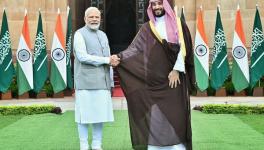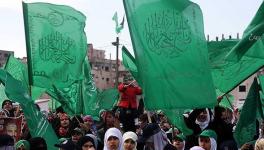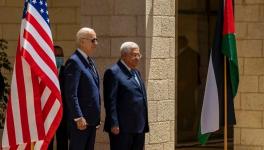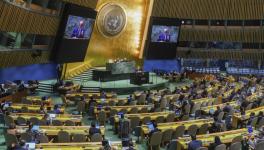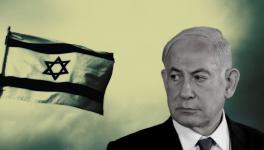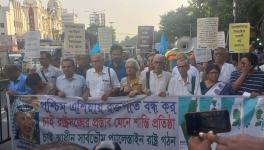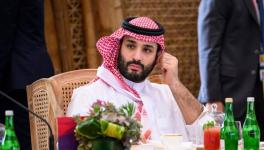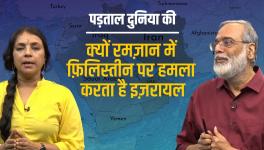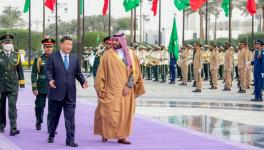Geneva 2: Not Much Hope for Peace in Syria
The Syrian rebel coalition –- the rag tag band that the US and the so-called “Friends of Syria” have put together –- calling it the Syrian National Coalition –- have been unable to agree to anything in its latest fiasco of a meeting in Istanbul.
The agenda of the western powers was to expand the coalition by inducting non-Islamist actors and prepare for the international meet in Geneva -– Geneva 2 –- where both sides in the on-going civil war are expected to participate. To this end they wanted Coalition council to be expanded substantially by inducting known secular faces in the opposition. The Muslim Brotherhood leadership who control the coalition now, opposed this, and with the support of Qatar, restricted the number of new members, leaving the power equation within the Coalition largely unchanged. Worst for the forces backing the Syrian rebels, they also decided not to participate in the Geneva conference being brokered by the US and Russia unless their pre-conditions -- that Hezbullah forces leave Syria and other demands -- are met.
In contrast, President Bashar al-Assad in a recent Al Manar interview has agreed to participate unconditionally in the Geneva meet. Incidentally, this is the first time after Geneva 1 held almost a year back, that the US has worked with Russia on Syria; all other such “international” meetings were NATO powers meeting largely with the Arab monarchies. The irony of the western powers fighting for “democracy” in Syria in the company of the “democratic” monarchies of Saudi Arabia, Qatar, Jordan, and Gulf Cooperation Council states is not lost on the world.
President Bashar al-Assad in his interview with the Lebanese Al-Manar TV channel, which has been widely quoted in the “international”, read western media, of having said that Russia has already delivered S-300 anti-aircraft missile batteries to Syria. The transcripts show that Assad has said, “All of our agreements with Russia will be implemented, some have been implemented during the past period and, together with the Russians, we will continue to implement these contracts in the future.” If the media want to infer from this that S-300 batteries are in Syria they are welcome to do so but Assad's statements are similar to what the Russian side have been saying all along -- that S-300 batteries are a part of their on-going contracts while not giving any further details.
S-300 batteries are a game changer in the aerial defence of Syria. With Israel striking Syrian government positions repeatedly from air, the Russian wanted to send a clear message to Israel. Striking Syria henceforth would no longer be easy. Not surprisingly, the western powers, which have been arming Israel and its offensive capabilities for decades, went ballistic, calling it destabilising”. Apparently, for the western powers any defence system that takes away Israel's ability to strike an Arab country at will and threatens Israel’s absolute dominance over the region is “destabilising”.
The picture in Syria is rapidly changing after months of rebel forces advancing in various parts of Syria. Bashar al-Assad's forces now have the initiative and are advancing over a broad front. In Al Qusayr, the Syrian army with Hezbullah help, has more or less taken control of the town and cut off the main supply line of the rebels from the Lebanese border to the north including the important town of Homs and Aleppo. The Syrian forces hold the whip hand in Al Qusayr, even though pockets of resistance still remain.
For those who follow Syria closely, it was also interesting to see one of the defenders of Al Qusayr is Al Sukar of Faroukh Brigade. Al Sukar was shown in a widely circulated video eating a part of the heart of a dead Syrian soldier, and declaring death to Alawaites. Till this incident, western media had reported Farouk Brigade to be a part of the non-sectarian Free Syrian Army.
It is difficult to figure out Israel's calculations in bombing of Syria. Netanyahu and company may have thought that with Assad under siege, this was a good time to try and cut off Hezbullah's supply lines. In this calculation, Al Qasayr is important if we consider that it is close to Tripoli on the Lebanese side. Bombing military targets in Syria and attacking military supplies within Syria quite conceivably is linked to the strategic battle over Al Qusayr. Israel might have been hoping that if Syria responds militarily to such aerial attacks, it could be used to change the equation in West Asia by taking Syria physically out of the current Iran-Syria-Hezbullah alliance. If Syria does not respond, it would lose credibility and therefore weaken the resistance to Israel.
Israel's miscalculation is that it did not take into account the response from Russia and Hezbullah. Russia has now made clear that attacking Syria from the air would involve the Russians, if not directly at least indirectly; that is why the promise of S-300's. Israel's air strikes also allowed Hezbullah to enter the battle of Al Qusayr. There are a large number of villages on both sides of the border between Lebanon and Syria that have a sizeable Shi'ite population. Attacks by the Sunni extremist rebel elements in Syria against the Shi'ites, in collusion with anti-Hezbullah forces in Lebanon had already drawn Hezbullah to defend these villages. Coupled with Israel’s air strikes on Syria on essentially Hezbullah supply routes, these provided a degree of legitimacy to Hezbullah’s actions in Al Qusayr that it might not have had earlier. In the larger Arab world, the Syrian rebel forces now appear to be in tacit alliance with Israel.
The EU meanwhile has revoked its “arms embargo” on Syria. Of course, this arms embargo was a charade from the beginning. Arms were freely being supplied to the Syrian rebels right from the beginning. It was officially an embargo, while all kinds of arms poured in from the west through the good offices of Turkey, Qatar and Saudi Arabia. Jordan, Lebanon and Turkey provided the main supply routes. Libya was also a major source, for arms as well as Libyan Islamist groups coming to fight in Syria. CIA acted as the conduit, arranging for such supplies through Turkey. What was not freely available was heavy weapons and anti aircraft missiles. The discussion that is going on western circles is on the supply of such weapons to the rebel forces.
Recently, with Jabahat Al Nusra declaring itself officially to be a part of Al Qaeda, the western powers have now been forced to differentiate between the “bad” Islamists of Al Nusra kind and the “good” Islamists that are a part of FSA –- that is all the rest including the cannibal Al Sukar's group, the Faroukh Brigade. Secular and democracy loving rebels are now hard to come by, especially with the kind of foreign fighters that have come into Syria.
With Boston bombing and the Woolwich attack on a British soldier, a part of the western establishment is forced to rethink on its strategy of aligning with Salafi extremists to take on Iran, Syria and Hezbullah. Alastair Crooke, a former MI6 officer and commentator had pointed out in 2011 that the operation to throw out Assad was mounted with Saudi help in order to block the corridor from Iran to Hezbullah. In US thinking, Syria and Assad were the weak links. He wrote in his 2011 piece in Guardian, “US officials speculated as to what might be done to block this vital corridor, but it was Prince Bandar of Saudi Arabia who surprised them by saying that the solution was to harness Islamic forces. The Americans were intrigued, but could not deal with such people. Leave that to me, Bandar retorted”.
The lifting of the arms embargo by the EU came after hectic lobbying by France and the UK. It also has the blessings of the US. As the rebels in Syria lose ground and squabble among themselves, it is clear that the military momentum is shifting back to Assad’s forces. The western powers now have the choice of supplying arms to the most organised opponents of Assad government – Al Nusra and their allies – or seeing Assad forces come out on top. They can postpone the end by supplying arms to the “good” Islamists, but this will only delay the end, plunging Syria into further bloodshed.
As various observers have noted, there are no secular and democratic elements to be found in the rebel ranks. Those who did oppose Assad's regime initially wanting a more democratic Syria have been marginalised over time. Even those who initially opposed Assad's brutal methods and the authoritarian Ba'ath regime now see the foreign supported uprising as an attack on Syria as a nation and have increasingly demarcated themselves from the rebels.
The only hope to stop the horrendous bloodletting that and enormous displacement of people that is taking place in Syria can be stopped only by a political process. Geneva 2 could have initiated this process and the UN mediator Lakhdar Brahimi could have taken it further. With the opposition rebels still hoping for a military solution and war-like noise emanating from western capitals, as well as Turkey and the West Asian monarchies, it is difficult to see Geneva 2 initiating such a process.
Disclaimer: The views expressed here are the author's personal views, and do not necessarily represent the views of Newsclick
Get the latest reports & analysis with people's perspective on Protests, movements & deep analytical videos, discussions of the current affairs in your Telegram app. Subscribe to NewsClick's Telegram channel & get Real-Time updates on stories, as they get published on our website.










